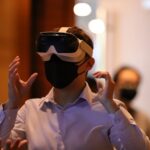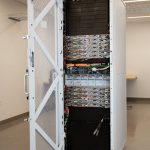Briand Greer, President of Honeywell ASEAN said, “We believe the ASEAN region offers tremendous growth potential due to its favourable demographics and alignment with Honeywell’s portfolio and global macro trends, such as the growing middle class, urbanization, green and efficient energy, safety, security and digitalization. We have been here for more than 30 years, but this is a new chapter for Honeywell. We are excited to partner the Malaysian and other regional governments and businesses to hire and develop local talent as well as bring out global resources and vision to these markets.”
With a dynamic, tech-savvy population of 650 million people and a fast-growing mid-segment, ASEAN is on track to be the world’s fourth-largest economy by 2050. Countries within the Asia Pacific will also lead market growth in the Industrial Internet of Things (IIoT) arena, expected to be worth US$54 billion by 2020.
The new ASEAN HQ in Malaysia will support Honeywell’s businesses by providing leadership, local and timely decision-making and the capability to deliver innovative, specific solutions to industries including aerospace, oil & gas, automation and process controls, home and building solutions, industrial safety, mobile business productivity and automated warehouse operations.
Honeywell is the 1st multinational company to have joined Malaysia’s new Principal Hub initiative, introduced by the Malaysian Investment Development Authority (MIDA) in 2015. Honeywell has invested in more than US$500million and created more than 120 high-value jobs, the majority of which are staffed by local talent.
Honeywell currently has a workforce of 1500 in Malaysia, and more than 4000 employees spread across the region of Singapore, Indonesia, Thailand, Vietnam, Myanmar and the Philippines. This includes six regional and global engineering, manufacturing, and repair & service sites.
Situated at The Vertical, Bangsar South and totalling 74,000sft, the HQ is currently home to over 400 employees from four strategic business groups – Aerospace; Home and Building Technologies; Safety and Productivity Solutions; and Performance Materials and Technologies. Key leadership and expertise have already started transitioning into the country, with more than 50 regional roles moving to Malaysia in the last year alone. Equipped with Honeywell’s automated building solutions, the HQ features the latest in workplace design, which encourages workforce flexibility and collaboration.
The HQ includes a dedicated showcase area that demonstrates Honeywell’s best-in-class software industrial products and offerings in Connected Transportation, Connected Worker, Connected Homes and Buildings and Connected Industrial. About 60% of Honeywell’s global growth over the next 5 years will be connected to software, and to support this growth, the company will continue to make smart investments in software development capabilities, facilities and talent.
“In our journey to become the leading software-industrial company globally, software will represent a big portion of our growth, which is why, even as a product-oriented industrial company, about half of our 23,000 engineers globally are in software,” said Greer.
Also on hand for the launch of Honeywell ASEAN HQ was Y.B Dato’ Sri Mustapa Mohamed, who, in his opening speech, pointed out that since Honeywell, another 27 Principal Hub projects had been approved todate. The notable ones are from Ikea, Nestrade S.A and Daikin. These will no doubt, significantly impact Malaysia’s economy over the next 10 years by creating high-value jobs, increasing business spending and utilising local ancillary services. Honeywell itself is projected to double its workforce at the Malaysian HQ within the next few years.
He also applauded Honeywell for actively engaging with various government agencies in order to benefit Malaysia’s innovation ecosystem. Honeywell is already part of Malaysian Industry-Government Group for High Technology (MIGHT)’s committee to look into opportunities arising from Industry 4.0. Honeywell had also made commendable efforts in selecting 25 Malaysian teachers to be part of its Honeywell Educators at Space Academy Programme.
When asked if Honeywell will participate in the “One Belt One Road” (OBOR), Greer emphatically replied, “Most definitely. Almost all our products and offerings are applicable to these projects. How we compete for China projects is to benchmark against the best Chinese competitors in China.”
Underscoring the importance of Malaysia as the launchpad into this ‘honeypot’ of opportunity in the coming years is Malaysia’s English-speaking talent, its relative reasonable cost and the government’s supportive ecosystem of all sectors with high-tech facets.








